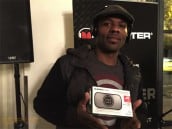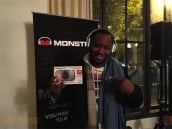Find Our Latest Video Reviews on YouTube!
If you want to stay on top of all of our video reviews of the latest tech, be sure to check out and subscribe to the Gear Live YouTube channel, hosted by Andru Edwards! It’s free!
Latest Gear Live Videos
5 things Tim Cook must do to replace Steve Jobs as Apple CEO

Posted by Andru Edwards Categories: Apple, Editorial,
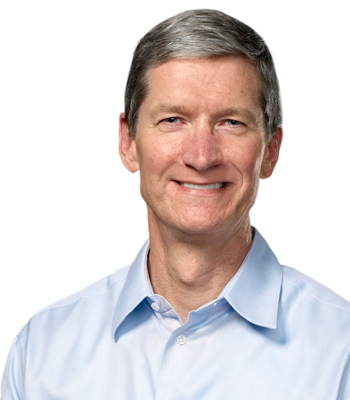 In 2009, Apple chief executive Steve Jobs stepped down unexpectedly – for the first time.
In 2009, Apple chief executive Steve Jobs stepped down unexpectedly – for the first time.
Now, Tim Cook, Apple's new chief executive, is in the same place as he was before, being asked to lead a company that's associated, in many minds, with Jobs himself.
In 2009, I asked Marshall Goldsmith, the author of What Got You Here Won't Get You There, and 23 other books, and a columnist for the Harvard Business Publishing Web site what he thought Cook should do. Below are excerpts from that conversation.
Let's talk about Tim Cook. What sort of problems does he face, taking over for an iconic CEO like Jobs?
Big problems. Its not any fault of his. His problems are not that something's wrong with him. His problems are that he's replacing an icon. I was at UCLA when John Wooden was the basketball coach. The next coach was Gene Bartow, who got fired for winning 90 percent plus of his games. He wasn't John Wooden. It's incredibly difficult to replace someone who has seen as an icon.
The only thing I don't think people don't understand about good leaders is that they're both good and lucky. A lot of it is timing. If Jack Welch was still the CEO of General Electric, he wouldn't nearly be the icon he is today. The timing was good. General Electric's stock would have tanked whether he left or if he had stayed. But he happened to leave at the right time and so he came off as an iconic, do no wrong figure. But he was lucky. I'm sure he was a great CEO, but the thing is you can be a great CEO and the corporate results can tank.
Click to continue reading 5 things Tim Cook must do to replace Steve Jobs as Apple CEO
Gallery: 5 things Tim Cook must do to replace Steve Jobs as Apple CEO
Advertisement
Why Google’s Motorola purchase is a genius move

Posted by Andru Edwards Categories: Corporate News, Editorial, Google,
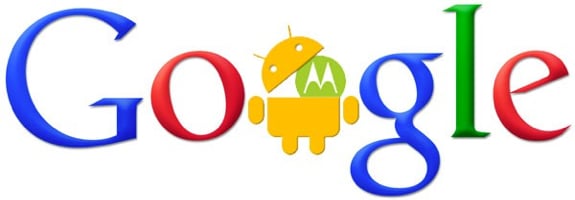
I was just wondering what Google was going to do to prevent getting shut out of the mobile phone business. It was as if Google was down 1-0 in the bottom of the ninth. With two outs, Google stepped up to the plate and hits a walk-off home run, with its purchase of Motorola Mobility.
This scenario is fascinating for a number of reasons. First of all, somewhere along the line, both Apple and Microsoft took a terrible dislike to this Android nonsense. First, Microsoft cozies up to Nokia to subvert Android (to no avail). Then Microsoft, Apple, and others pulled a trick play to get the Nortel patent assets in an effort to develop a patent portfolio to screw Google.
So Google knows it’s toast if it doesn't do anything. But what would it do? Did anyone call this one? Certainly, not me.
Let's face it, when it comes to mobile phone patents, Motorola easily has as many or more than Nortel, which is more into fiber and other comm patents. Google is now one up on the rest of these folks.
Click to continue reading Why Google’s Motorola purchase is a genius move
Gallery: Why Google’s Motorola purchase is a genius move
Here’s how to get free cell phone service

Posted by Andru Edwards Categories: Smartphones, Editorial, Hot Deals,
Yes, you can get a free cell phone with government assistance. If you make very little money, or you're part of other federal programs such as public housing, food stamps, SSI, or Medicaid, you can get a free mobile phone paid for by a fee on everyone else's phone bills.
This program has been around for years. According to the FCC, the government has been subsidizing landlines since 1984; the program, now called LifeLine, added mobile phones in 1997. LifeLine was enhanced in 2005 during the Bush administration, and TracFone's SafeLink, the first purely free LifeLine phone brand, started disbursing free phones in 2008.
"The telecoms haven't done a very good job promoting LifeLine, and the penetration rates have been dismal," said Jose Fuentes, Tracfone's director of government relations. TracFone operates SafeLink.
LifeLine is funded by the Universal Service Fund, which you see as a surcharge on your phone bill. Established by a 1996 law, the USF makes sure that people who live in rural and low-income areas, as well as schools and libraries can get phone service. It doesn't make a distinction between wired and wireless phones; you can get a subsidy for either, but you have to choose one.
Click to continue reading Here’s how to get free cell phone service
Gallery: Here’s how to get free cell phone service
Mac OS X Lion: Has the OS become just another app?

Posted by Andru Edwards Categories: Apple, Editorial, Features, Software,
I upgraded my MacBook Pro to Apple OS X Lion in a lunch hour. Okay, it wasn't a lunch hour—I couldn't wait that long—but even more astonishing than the expediency (30 minutes to download and 35 to upgrade) was the effortlessness of the process.
At 9am yesterday morning, I opened the Mac App Store, clicked purchase, and let the installer work its magic. When I returned to my machine, it donned a fresh new log-in screen and a new OS. As tech journalist, this ought to have delighted me. Instead, I was left hungering for more.
It's not that Lion isn't a graceful creature; Apple's latest OS adds poise to an already agile predecessor. The 250 new features—Mission Control has already changed how I work—touch every corner of the OS and surpass the 150 additions of the refinement-focused Snow Leopard. Yet I can't help feel that something important is happening—has already happened—to very concept of the OS.
Click to continue reading Mac OS X Lion: Has the OS become just another app?
Gallery: Mac OS X Lion: Has the OS become just another app?
Here’s how Apple uses its massive amount of cash to its advantage

Posted by Andru Edwards Categories: Apple, Editorial, Features, Handhelds, PC / Laptop,
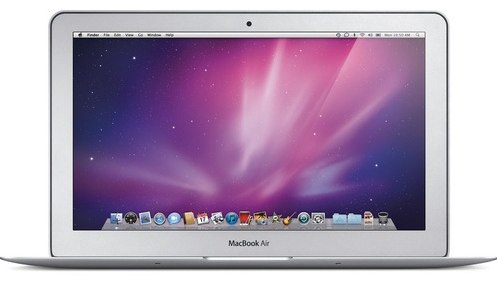
Over the last few years, Apple has stockpiled cash in such huge amounts that investors often question Apple about its strategy of keeping so much money around. When asked about it, Steve Jobs and team always points out that the market is unstable and they need to have cash in place for good times and bad, as well as have money available for major acquisitions, as part of its growth strategy.
And even though this answer normally keeps its investors at bay, as Apple continues to grow its cash reserves, which currently sits somewhere around $70 billion, investors and media alike continue to tell Apple that perhaps it's time to release a dividend to shareholders. But Apple is steadfast about its position. An interesting post from an anonymous writer on Quora recently shared a fascinating view of why Apple keeps so much cash around.
Click to continue reading Here’s how Apple uses its massive amount of cash to its advantage
Gallery: Here’s how Apple uses its massive amount of cash to its advantage
Will Google+ survive its own hype?

Posted by Andru Edwards Categories: Editorial, Features, Google, Internet,
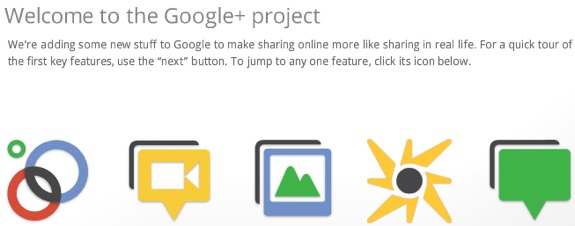
Google+, the presumptive Facebook killer, shows tremendous potential. As someone who warms up to any social network with the alacrity of a Galápagos tortoise, this, for me, is saying something.
Yes, I'm one of the lucky ones who got a pre-over-capacity invite. I've tried to share a couple, but new Google+ users are only gaining entrance at a halting pace.
The service, which initially stuck me as a blatant Facebook rip-off, actually has many of its own charms, not the least of which is the useful, somewhat addictive Circles. I know this topic divides Google+ users. Some people do not like to spend time organizing their social contacts. I'm not sure I do either, but the method that Circles employs for discovery and organization (dragging and dropping people into actual circle graphics, for instance) is addictive and easily blows away anything Facebook ever developed.
Click to continue reading Will Google+ survive its own hype?
Gallery: Will Google+ survive its own hype?
Why is the HTC Evo View 4G the first Android tablet that supports Netflix?

Posted by Andru Edwards Categories: Editorial, Handhelds, Home Entertainment,
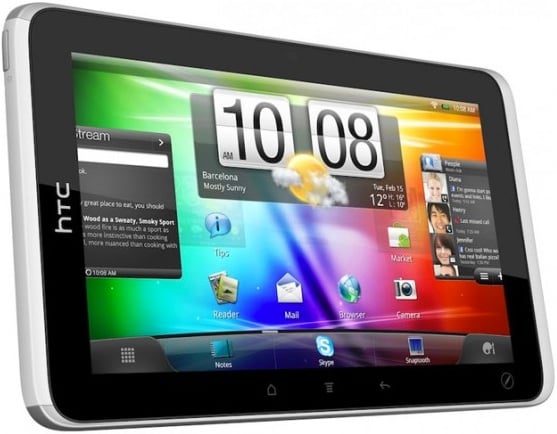
Here comes the HTC Evo View 4G! And it's packing a lot of firsts for its Friday debut on Sprint: The tablet is Sprint's first 4G Android tablet to hit the market, period–that's the first tablet set up to work with the company's 4G WiMax network—around 5 Mbps downloads and 950 Kbps uploads.
Most importantly—for movie buffs—the HTC Evo View 4G is the first tablet to ship with built-in support for Netflix movie and video streaming. In doing so, it joins an exclusive club of Android devices that support the service: A sad list that's currently limited to just nine Android smartphones.
So what's the deal? Are other Android-equipped devices—both phones and tablets—just too slow to run Netflix? Not necessarily. A Sprint spokeswoman confirmed in an interview with Wired that the company performed plenty of testing to ensure that Netflix streaming would proceed smoothly across the company's network.
The more realistic answer as to why you can't yet get Netflix on, say, a Motorola Xoom tablet, is the ugly monster that often rears its head whenever Android upgrades are discussed: Fragmentation. In the case of Netflix, the company has to perform extra research and configuration to ensure that the digital rights management systems it employs work across a number of Android devices. And that's not just a work-once, works-everywhere kind of proposal.
Click to continue reading Why is the HTC Evo View 4G the first Android tablet that supports Netflix?
Gallery: Why is the HTC Evo View 4G the first Android tablet that supports Netflix?
Apple secures iPhone patent that could be huge blow to rivals

Posted by Andru Edwards Categories: Apple, Smartphones, Editorial,
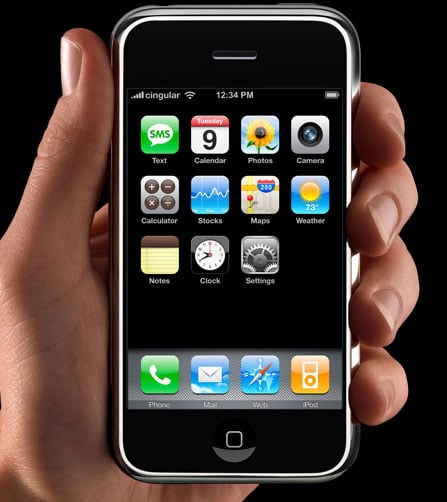
Apple has been awarded its long sought-after patent on the iPhone. Intellectual property experts say it's so broad and far-reaching that the iPhone maker may be able to bully other smart phone manufacturers out of the U.S. market entirely.
Some three-and-a-half years after filing for a patent on the iPhone, Apple on Tuesday was awarded U.S. patent number 7,966,578 for "[a] computer-implemented method, for use in conjunction with a portable multifunction device with a touch screen display, [that] comprises displaying a portion of page content, including a frame displaying a portion of frame content and also including other content of the page, on the touch screen display."
That's just the beginning of the abstract for Apple's iPhone patent, which the company filed back in December 2007. It gets quite a bit more technical in its full form, but there's one thing patent experts consulted by PCMag agree on—Apple has been awarded an incredibly broad patent that could prove to be hugely problematic for other makers of capacitive touch-screen smartphones.
Apple's patent essentially gives it ownership of the capacitive multitouch interface the company pioneered with its iPhone, said one source who has been involved in intellectual property litigation on similar matters. That's likely to produce a new round of lawsuits over the now-ubiquitous multitouch interfaces used in smartphones made by the likes of HTC, Samsung, Motorola, Research in Motion, Nokia, and others that run operating systems similar in nature to Apple's iOS, like Google's Android, said the source, who asked not to be named.
Click to continue reading Apple secures iPhone patent that could be huge blow to rivals
Gallery: Apple secures iPhone patent that could be huge blow to rivals
Six reasons why Apple is selling unlocked iPhones in the US

Posted by Andru Edwards Categories: Apple, Smartphones, Editorial, Handhelds,

Yesterday we told you that Apple started selling unlocked iPhone 4s here in the U.S. We do have to admit that the move leaves us scratching our heads a bit. The iPhone 4 is a year-old device at this point. That leaves the question: why?
The GSM iPhone 4 only works well on AT&T. Sure, you can run it on 2G EDGE with T-Mobile, but that's a lousy user experience, and Apple is all about providing smooth user experiences. I just can't accept that T-Mobile users want the iPhone so desperately that they're willing to give up 3G for it, although I may be wrong about that, too.
Boy Genius Report's Jon Geller is right when he says that Apple sells unlocked iPhones in 85 other countries. But those countries all have more than one GSM iPhone-compatible 3G carrier. Canada has three. Dave Zatz points out this morning that for Americans, the "unlocked" iPhone will cost $450 more over two years than the locked model, because AT&T doesn't give any discounts for bringing your own phone. That's "an extra $450 mostly for the privilege of feeling more liberated and fancy free," he concludes.
Click to continue reading Six reasons why Apple is selling unlocked iPhones in the US
Gallery: Six reasons why Apple is selling unlocked iPhones in the US
iCloud: Can Apple make the cloud mainstream?

Posted by Andru Edwards Categories: Apple, Editorial, Features, Internet, Music,
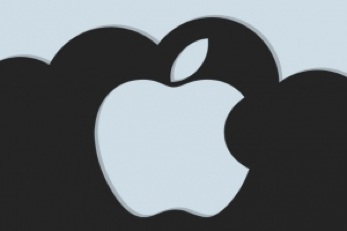 I've long since stopped kvetching over the number of things Apple chief executive Steve Jobs can attach an "i" to and call his own. The maverick CEO's track record is just too darn good. Now that we know that Apple's iCloud is a real thing, there's no sense in wondering how Jobs can have the gall to rebrand cloud computing. I'd rather focus on what Apple will do with the cl...er... iCloud now that Apple has adopted it as its own.
I've long since stopped kvetching over the number of things Apple chief executive Steve Jobs can attach an "i" to and call his own. The maverick CEO's track record is just too darn good. Now that we know that Apple's iCloud is a real thing, there's no sense in wondering how Jobs can have the gall to rebrand cloud computing. I'd rather focus on what Apple will do with the cl...er... iCloud now that Apple has adopted it as its own.
Is Apple new to the cloud? If you accept that at the most fundamental level, cloud computing is simply a matter of thin clients (hardware or software) accessing Internet-based services and intelligence, then the answer is no. Consider Apple's reliance on streaming services for Apple TV's TV show and movie rentals, or the way genius playlists work.
iCloud, which Apple will officially unveil at next week's World Wide Developers Conference (WWDC), will be more, and streaming content is only the beginning. Obviously, we expect some sort of cloud-based, access-anywhere music library. Apple may even cave and offer a subscription-based music service. These plans will only succeed if Apple has done what Google failed to do with Google Music Beta: convince the major labels to let consumers store and access purchased (and rented) music from central servers.
I think music labels fear this not only because they worry about losing further control of the digital bits that make up their vast song libraries, but because no one will ever buy more than one copy of a song again, and if they get subscription access, they're done buying music—period.
Click to continue reading iCloud: Can Apple make the cloud mainstream?
Gallery: iCloud: Can Apple make the cloud mainstream?
Advertisement
© Gear Live Inc. {year} – User-posted content, unless source is quoted, is licensed under a Creative Commons Public Domain License. Gear Live graphics, logos, designs, page headers, button icons, videos, articles, blogs, forums, scripts and other service names are the trademarks of Gear Live Inc.


